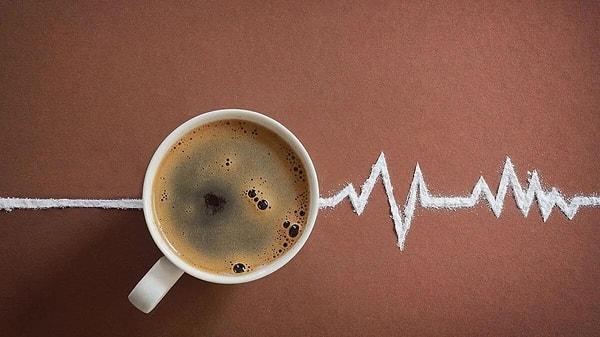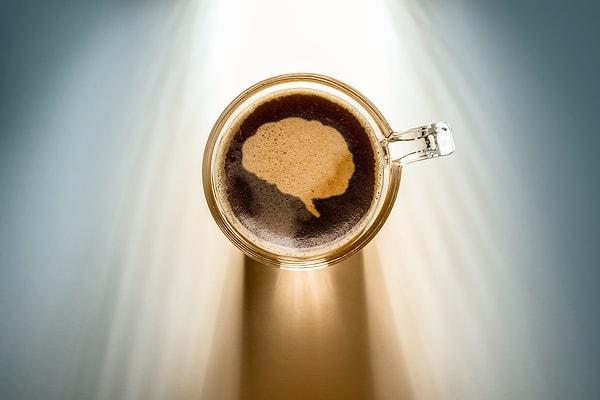The Effects of Caffeine on Your Health: What You Need to Know
From your morning coffee cup to the pills you take when you have a cold, or even the chocolate bar you enjoy in the afternoon, caffeine can be found everywhere. Lately, it's been making frequent appearances in the news due to its potential effects on health. While supporters openly advocate for its benefits, others criticize it because of the alleged risks. So, who is right? Find out the details below.
How does it affect heart health?

Some research suggests that caffeine could actually be beneficial for our hearts. In an analysis of three major heart disease studies, researchers found that higher coffee consumption was associated with a reduced risk of heart failure. Drinking decaffeinated coffee did not show the same effect, indicating that the effect may be related to caffeine. However, more research is needed to fully confirm this theory. Additionally, researchers have identified some short-term cardiovascular effects related to consuming beverages with high levels of caffeine. High consumption levels can temporarily increase blood pressure and heart palpitations. This effect is particularly noticeable when energy drinks are consumed with alcohol, so it's important to be cautious.
How does it impact metabolism balance?

A study published last year found that people with high blood caffeine levels may have a lower risk of obesity and type 2 diabetes. These individuals had variations in two genes associated with caffeine metabolism, meaning the molecule breaks down slowly in their bodies, resulting in higher levels of caffeine in their blood. However, this study has limitations: for example, it's thought that half of caffeine's effect may be through weight loss. Another important factor is that the study mainly included people of European descent, so it's important to note that the findings may not be applicable to everyone. More research is needed to determine the role of increasing caffeine intake in reducing the risk of these two conditions.
How does it affect mental health?

Caffeine is a stimulant, and many people consume coffee or energy drinks in the morning or afternoon to boost their energy levels and moods. So how does caffeine do this? As part of the American Medical Association's 'Things Doctors Want Patients to Know' series, neurologist Dr. Nicole Clark explained that caffeine triggers dopamine in your brain, which plays a role in pleasure motivation and learning processes. On the other hand, if you already have experiences with conditions like panic attacks and anxiety, recent research suggests that caffeine may worsen your mood. A 2022 meta-analysis found that consuming an amount equivalent to about five cups of coffee can cause panic attacks and anxiety in people with panic disorder, as well as in healthy individuals, but those with panic disorder are more susceptible to it.
How does it affect the baby during pregnancy?

Since caffeine can pass through the placenta, it can reach the bloodstream of a growing fetus. Research in this area has shown that consuming more than 300 milligrams daily may be associated with a risk of low birth weight, while more than 350 milligrams may be linked to pregnancy loss. Therefore, while many health organizations state that pregnant individuals can still consume some caffeine if they wish, they recommend keeping daily intake below 200 milligrams. However, a study in 2020 concluded that an increasing range of research suggests there is no safe level of caffeine consumption during pregnancy.
How does it impact workout performance?

Caffeine supplementation is a common trend in fitness and sports performance and is often added in varying amounts to pre-workout powders. Research has generally suggested that caffeine can enhance sports performance; however, most of these studies are based on male athletes' data, yet sports nutrition organizations generally apply this in their guidelines. In a meta-analysis of studies involving female team sport athletes, researchers found that caffeine supplementation was effective in increasing some performance aspects like grip strength and counter-movement jump, but not others (agility, squat jumps, repeated sprint ability). This indicates that more research is needed before applying all the current ideas about caffeine. Additionally, there are suggestions that coffee, in particular, may enhance performance in various activities, but it's unclear how much of this effect is specifically attributed to caffeine.
Beyond all these, what makes caffeine "good" or "bad" depends on the individual.

Factors such as how your body metabolizes it, whether you take medications that could interact with it, or how much you consume are important. However, it's important to remember that caffeine is a drug, and caffeine toxicity or overdose is quite rare but can be fatal. Therefore, it's best to be cautious, especially with caffeine supplements. The Food and Drug Administration (FDA) provides tips to help determine how much caffeine is too much. Symptoms may include insomnia, nausea/stomach discomfort, headaches, tremors, and/or anxiety or feeling unhappy. If you want to reduce caffeine intake, it's generally recommended to do so gradually. Suddenly stopping may not be as dangerous as with other medications, but it can lead to quite unpleasant side effects like headaches and fatigue, so throwing away all your coffee beans immediately is not the best idea.
Keşfet ile ziyaret ettiğin tüm kategorileri tek akışta gör!


Send Comment